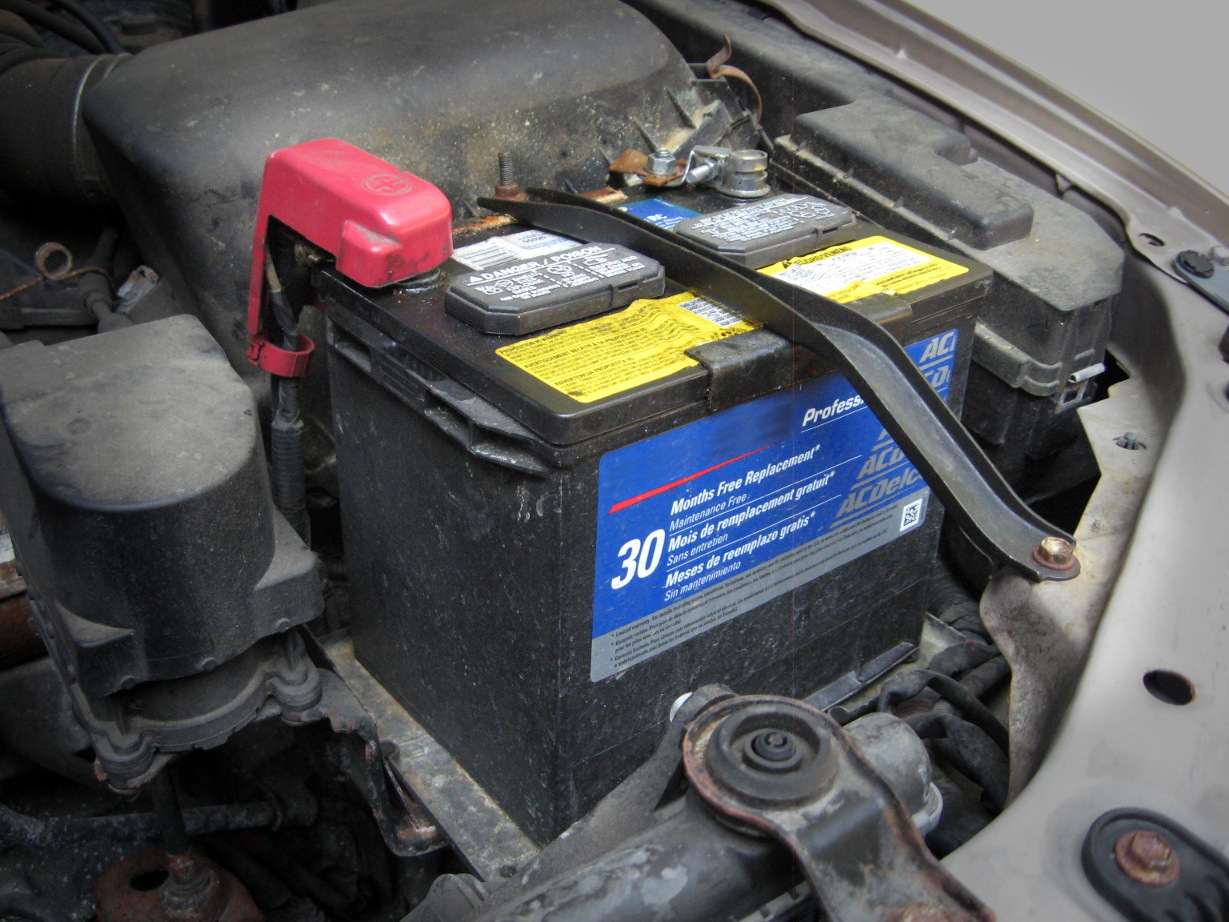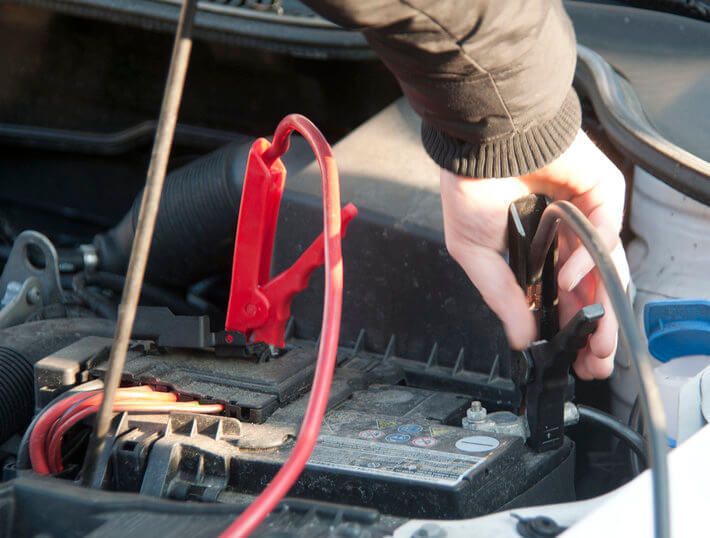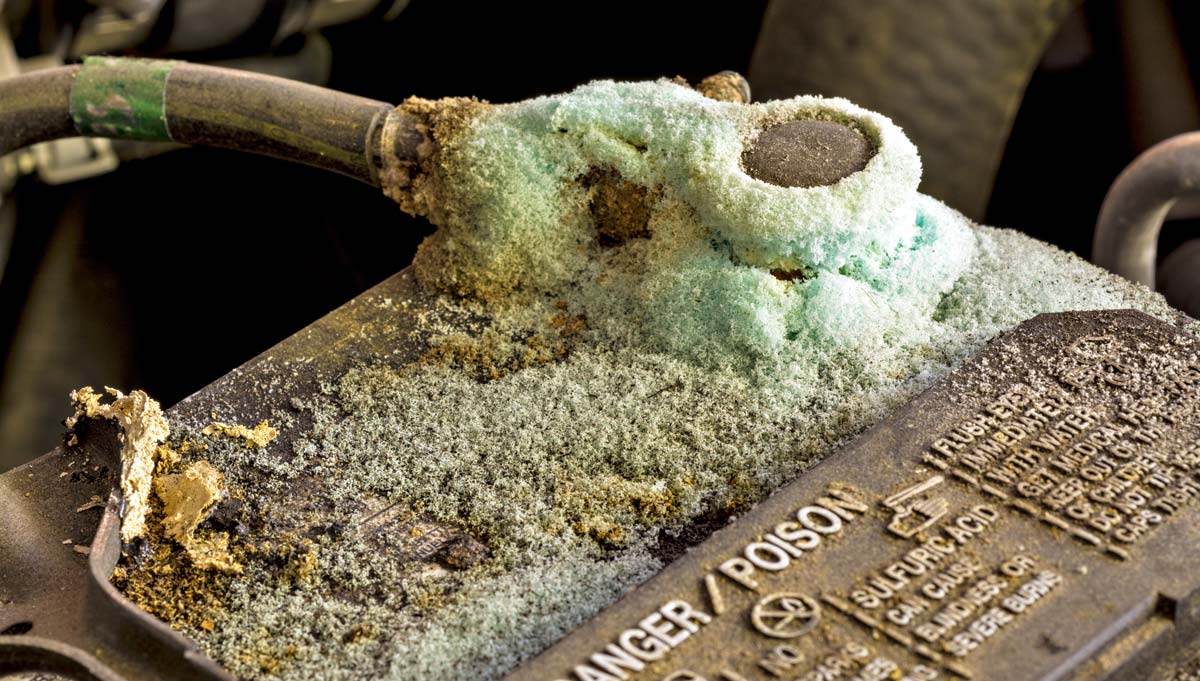Have you ever experienced that gut-wrenching moment when you turn the key in your car’s ignition, only to be met with a disheartening silence? It’s the dreaded dead car battery, and it can leave you feeling stranded and frustrated.
Understanding what kills a car battery can save you from unexpected breakdowns and costly replacements. Imagine knowing exactly what to avoid to keep your car running smoothly. We’re diving deep into the common culprits that drain your car battery, often without you even realizing it.
With the right knowledge, you can ensure that your vehicle is always ready to go when you are. Stick around, and you’ll discover simple tips to extend the life of your car battery and avoid those annoying morning surprises.

Credit: www.wtamu.edu
Common Battery Drainers
Have you ever found yourself stuck with a dead car battery at the most inconvenient time? You’re not alone. Understanding what drains your car battery can save you from future frustrations and unexpected expenses. Some common culprits might surprise you, and knowing them can help you take preventative steps. Let’s dive into the usual suspects that silently sap your battery’s life.
Leaving Lights On
We’ve all done it. You park your car, get out, and forget to turn off the headlights. Overnight, those lights work tirelessly to drain your battery. Even interior lights left on can be a problem. It’s an easy mistake that can lead to a morning of frustration. Make it a habit to check your lights each time you leave your car.
Parasitic Drain
Parasitic drain sounds like something out of a science fiction movie, but it’s very real. This occurs when electrical components continue to draw power even when the car is off. Alarm systems, radios, and even the clock can contribute to this drain. Is your battery frequently dying without a clear reason? It might be worth investigating if parasitic drain is the culprit.
Frequent Short Trips
Did you know that short trips can be tough on your battery? Driving short distances doesn’t give your alternator enough time to recharge the battery fully. Over time, this can lead to a weakened battery. If you often find yourself taking short drives, consider occasionally taking longer routes to allow your battery to recharge properly.
Have you experienced any of these battery drainers? How did you tackle them? Share your story in the comments below!
Environmental Factors
Cold weather can drain a car battery quickly. High temperatures can also cause battery fluid to evaporate, leading to damage. Environmental factors play a significant role in battery lifespan, affecting performance and reliability.
Car batteries can be unpredictable. One day they’re fine, and the next, your car won’t start. But did you know that environmental factors play a huge role in draining your battery? Understanding these factors can help you protect your vehicle’s battery life and save you from unexpected breakdowns.
Extreme Temperatures
Extreme weather conditions can be brutal on your car battery. Both scorching heat and freezing cold can drain its power. During a heatwave, the fluid inside the battery can evaporate, damaging internal components. Similarly, in freezing temperatures, your battery’s chemical reactions slow down, making it harder to start the car. I remember one winter morning when my car refused to start, simply because the battery was too cold. Have you ever faced something similar?
Humidity Effects
Humidity might seem harmless, but it can lead to battery corrosion. Moisture in the air can cause the terminals to rust, weakening the battery’s connection. If you live in a humid area, it’s crucial to check your battery terminals regularly. Clean them to prevent buildup and ensure your car starts every time. A small effort can go a long way in maintaining your battery’s health. Have you checked your battery connections lately? You might be surprised at what you find. Understanding these environmental factors can make all the difference in how long your car battery lasts. What steps will you take to protect yours?
Mechanical Issues
Mechanical issues can quickly drain a car battery. These problems often go unnoticed. They quietly sap power, leaving your vehicle lifeless. Addressing these issues early can save time and money. Let’s explore some common mechanical culprits.
Faulty Alternator
A faulty alternator can drain your battery fast. It fails to charge the battery while driving. This leaves the battery depleted. Symptoms include dim lights and slow starts. Get your alternator checked if you notice these signs.
Corroded Battery Terminals
Corroded battery terminals interrupt power flow. This prevents the battery from charging fully. Corrosion appears as a white, crusty build-up. Regular cleaning can prevent this issue. Use a simple baking soda solution to clean terminals.
Loose Or Broken Belts
Loose or broken belts affect your vehicle’s charging system. They reduce the alternator’s efficiency. This leads to a drained battery. Check belts for wear and tear regularly. Replace them if they show signs of damage.

Credit: www.firestonecompleteautocare.com
Battery Age And Maintenance
Keeping your car battery in good condition is crucial for your vehicle’s reliability. Battery age and maintenance play a significant role in determining how long your car will run smoothly. Ever wondered why your car battery dies unexpectedly? Often, it’s the lack of maintenance and awareness of its age that leads to issues. You don’t have to be a mechanic to extend your battery’s life, just a little attention and care can make a huge difference.
Lifespan Expectations
Every car battery has a limited lifespan. Typically, you can expect a car battery to last anywhere from three to five years. However, several factors can shorten its life, such as extreme weather conditions and frequent short trips. If your battery is older than three years, it’s wise to keep an eye on its performance. Have you ever calculated the age of your battery? It might be time to do so.
Importance Of Regular Checks
Regular checks can prevent your car battery from dying unexpectedly. Make it a habit to inspect your battery at least every six months. Look for corrosion on terminals, which can affect its performance. Simple steps like cleaning the terminals can prevent many issues. Ever found yourself stranded in a parking lot with a dead battery? Regular maintenance can help you avoid such frustrating situations.
Use a multimeter to check the battery’s voltage, which should be around 12.6 volts when fully charged. Also, listen for signs of a weak battery, such as slow engine cranking. If you notice anything unusual, it might be time for a professional check-up. How often do you perform these checks? Increasing their frequency can save you from unexpected hassles.
To sum it up, understanding your battery’s age and performing regular maintenance can save you time and money. Have you checked your car battery recently? If not, it might be the perfect time to start.
Solutions And Prevention Tips
Avoid leaving lights on to save car battery life. Regularly check terminals for corrosion and clean them. Drive frequently to keep the battery charged, especially in cold weather.
A dead car battery is more than just an inconvenience—it’s a frustration that can be avoided with some simple solutions and prevention tips. Understanding how to keep your battery in top condition can save you from unexpected breakdowns. This section will guide you through practical measures to extend your car battery’s life.
Proper Charging Techniques
Charging your battery correctly is crucial. Avoid leaving your car lights on overnight, as this drains the battery significantly. Invest in a quality battery charger; they’re affordable and can prevent undercharging or overcharging, both of which can shorten battery life. Regularly driving your car helps maintain battery charge. Short trips can drain the battery because it doesn’t have enough time to recharge fully. Aim for occasional longer drives to keep it healthy.
Routine Maintenance Practices
Routine checks can prevent a dead battery. Inspect battery terminals for corrosion, as this can disrupt the flow of electricity. A simple mixture of baking soda and water can clean off any buildup. Always ensure your battery is securely fastened. A loose battery can vibrate excessively, leading to damage and reduced lifespan. Check connections regularly and tighten them if necessary.
Emergency Tools And Kits
Having the right tools can save you in a pinch. Keep a portable jump starter in your car for emergencies. It’s a small investment for peace of mind. A basic toolkit with wrenches and screwdrivers can help with minor fixes. Consider adding a flashlight and gloves for better visibility and protection when you’re working. Have you ever been stranded because of a dead battery? These preventative tips can keep you on the road. Regular care and simple tools make a world of difference. Don’t wait until it’s too late—start today!

Credit: stevesautorepairva.com
FAQs on What Kills a Car Battery
What Causes A Car Battery To Die Quickly?
A car battery can die quickly due to leaving lights on, short drives, or extreme temperatures. Faulty charging systems or corroded battery terminals can also contribute. Regular maintenance and ensuring the battery is fully charged can help prevent premature failure and extend the battery’s lifespan.
Can A Car Battery Die From Sitting Too Long?
Yes, a car battery can die if it sits unused for too long. Batteries naturally lose charge over time, and inactivity accelerates this process. Regularly starting the car and driving or using a trickle charger can help maintain battery health during periods of inactivity.
How Does Cold Weather Affect Car Batteries?
Cold weather can significantly affect car batteries by reducing their capacity and efficiency. Low temperatures slow down the chemical reactions inside the battery, making it harder to start the engine. Ensuring the battery is fully charged and using a battery blanket can help mitigate cold weather impacts.
Why Does My Car Battery Keep Draining?
A car battery may keep draining due to parasitic drains, faulty alternators, or electrical issues. Accessories left on, like lights or radios, can also drain the battery. Regularly checking for these issues and getting professional diagnostics can help identify and fix the root cause.
Conclusion
Car batteries often die due to simple mistakes. Leaving lights on drains power fast. Corrosion on terminals weakens battery connections. Extreme temperatures harm battery health. Short drives prevent full recharging. Old batteries lose capacity over time. Regular checks can save your battery.
Clean terminals often. Ensure secure connections. Avoid electronic drains when parked. Drive longer distances to recharge fully. Replace old batteries before they fail. Keep your battery in top shape with these tips. Understanding these issues helps extend battery life. A little care goes a long way.
Your car battery will thank you.

